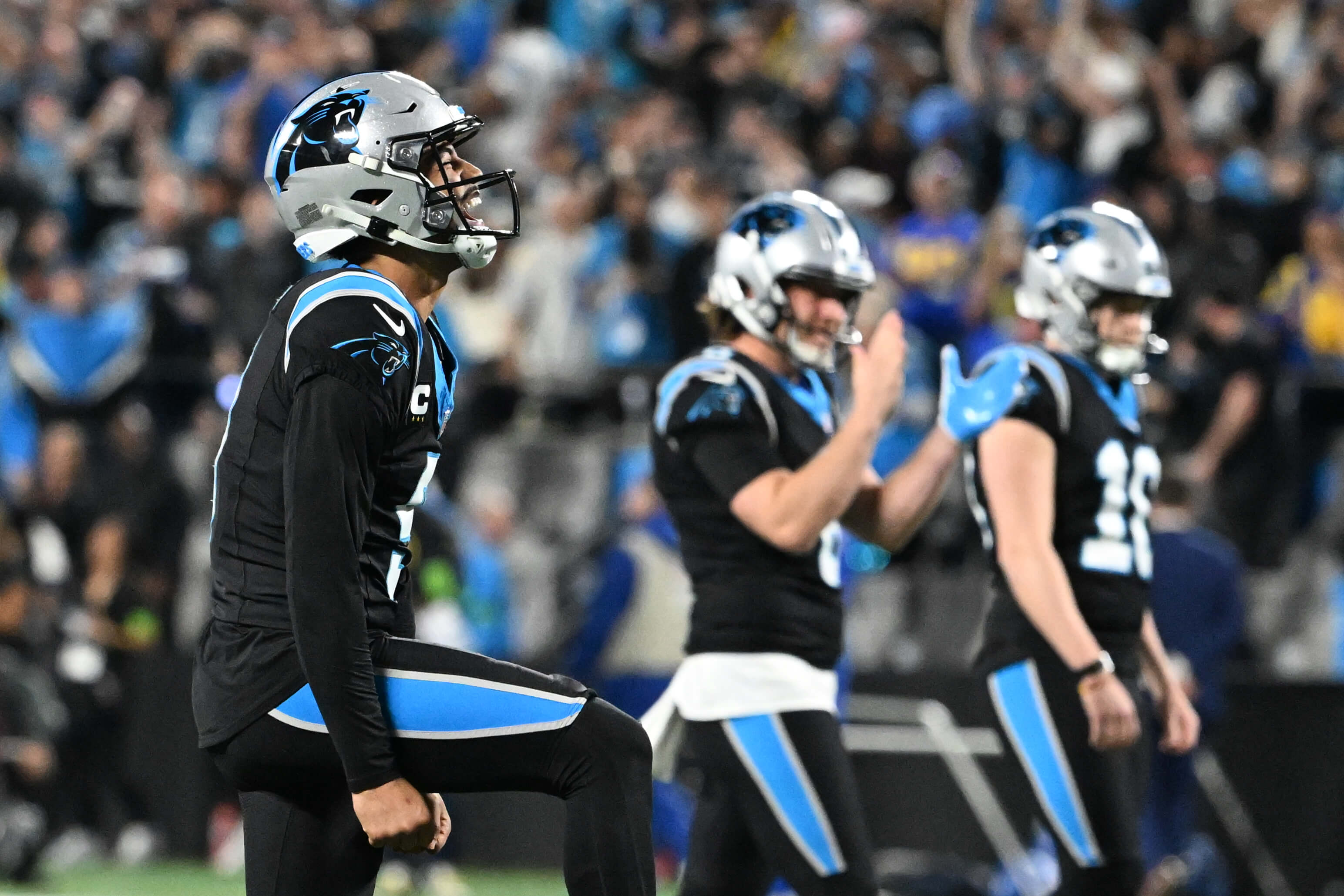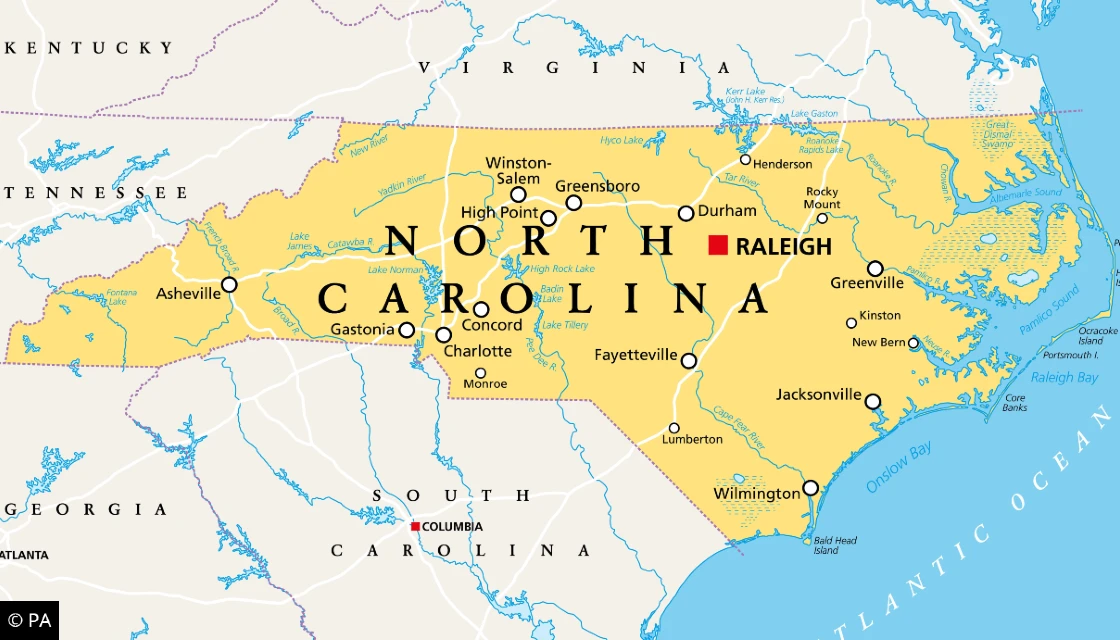When North Carolina Gov. Roy Cooper signed House Bill 347 into law earlier this month, he didn’t just fully legalize NC sports betting.
He also provided a new revenue stream for some sports teams.
The major professional franchises, like the Carolina Panthers, Charlotte Hornets and Carolina Hurricanes, all stand to benefit from the new law, which encourages sports betting operators to partner with teams and facilities hosting major stock car races and professional golf tournaments.
But those aren’t the only teams likely to come out as winners in the new era of online sportsbooks and betting apps in North Carolina.
Schools Stand To Benefit
HB 347 also sets aside two pools of money for athletics departments at 13 state-run universities.
Those are Appalachian State, East Carolina, Elizabeth City State, Fayetteville State, North Carolina A&T, North Carolina Central, UNC Asheville, UNC Charlotte, UNC Greensboro, UNC Pembroke, UNC Wilmington, Western Carolina and Winston-Salem State.
The first pool provides $300,000 for each school. Then after other fixed allocations for administrating sports betting, funding problem gambling services and providing grants for youth sports and amateur sports teams’ travel expenses, the state will take 20% of the remaining money and split that evenly among the schools.
If legislative researchers are correct with their estimates on sports betting tax revenue, then each school’s athletic department could receive nearly $6 million over the first four full fiscal years statewide sports betting is in place.
“This public funding will have a positive impact on our student-athletes, coaches, staff, facilities and the entire UNCW Athletics program,” said Michael Oblinger, UNCW’s director of athletics, in a statement to BetCarolina.com.
Lawmakers who sponsored the bill through the state legislature said the funding for the state’s smaller public universities will provide some budgetary relief, especially as their athletic conferences expand beyond the mid-Atlantic and southeastern states.
“It takes a lot to put money into gas tanks, into buses, into planes, so we have the opportunity to support them in that way,” said state Rep. Zack Hawkins, D-Durham, a co-sponsor of HB 347, at the bill signing ceremony in Charlotte earlier this month.
🏀 MORE: UNC Basketball Odds
‘It Will Allow Our Kids To Have A Better Experience’
Unlike some other states, North Carolina does not provide state funding for collegiate athletic departments. It’s not a significant issue for schools like the University of North Carolina and NC State, which receive millions of dollars in revenue from the Atlantic Coast Conference’s media deals.
However, the state’s other public universities – including those that play in NCAA Division I conferences – often find themselves lacking compared to their rivals in other states.
Western Carolina Director of Athletics Alex Gary told BetCarolina the new law will help educate people on how schools fund their programs. The WCU Catamounts play in the Southern Conference along with East Tennessee State and Chattanooga, schools that receive at least $6 million in state funding for their departments.
Gary said he isn’t calling for North Carolina to follow Tennessee’s lead and provide a direct subsidy. Still, he appreciates what the sports betting law will provide for a school that fields teams in 16 sports, including a football team that competes in the NCAA’s Football Championship Subdivision, the second-highest level in college.
“It will allow our kids to have a better experience,” he said. “Whether that’s the way they travel, the gear that they wear, our ability to retain their athletic trainer or their strength coach or their assistant coach or whatever the case may be.
“The economics of college athletics don’t – especially at my level in the FCS – don’t make a whole lot of sense to be in Division I. Most of our budget is student fees, and so we can’t generate enough money to be able to really act like a Division I program. This bill does provide more flexibility to allow us to be competitive and provide our student-athletes with the experience that we think that they deserve.”
🏀 MORE: Duke Basketball Odds
Not The Same For All
Not all schools, though, will be putting those funds into new facilities or hiring additional coaches or support staff.
UNC Asheville Director of Athletics Janet Cone described the sports betting tax funding as “a new tool in our toolbox as it comes to revenue” and said she would look to the department’s strategic plan for guidance on how to invest that in the program.
“My first goal is how do we serve our student-athletes in a holistic way, whether we need to put more funding in mental health, or we need to put more funding (in) academics and more scholarships,” Cone told BetCarolina. “I’m always going to go that way first. What are our needs there? Then, I’m going to go to what are our needs and make our facilities safe for student-athletes and the folks who are Bulldog fans.”
🏀 MORE: March Madness Odds
Sports Betting Education Needed, Expert Says
Passage of the North Carolina law comes when officials and regulators are paying closer attention to the relationship between college sports and sports betting operators in legal markets.
Several states have banned operators from advertising on campuses, and schools like the University of Maryland, Louisiana State University and Michigan State University have ended deals with Caesars Sportsbook. There is an expectation Caesars Sportsbook North Carolina will be a player in the new state market next year.
Dr. Michelle Malkin, an assistant professor at East Carolina University’s Department of Criminal Justice and Criminology, has been working on a study with students from 12 of the 16 UNC campuses across the state to learn more about their attitudes and engagements with gambling.
Malkin told BetCarolina it was important to start the study before sportsbooks were licensed to get baseline data.
Of the approximately 1,700 students polled (including around 250 student-athletes), about 60% said they have gambled in some way – not necessarily through sports betting – at least once in the past year. A similar number also said they believe gambling to be at least a minor issue on their campus.
A concern for Malkin was that very few said they’ve ever received education about gambling or screened for potential problem behaviors. Malkin could not say how ECU’s athletic department would use the money it receives from sports betting taxes. Still, they added Director of Athletics Jon Gilbert intends “to educate every single athlete here on campus” about the rules and regulations on gambling.
It’s an approach Malkin hopes is followed at other schools receiving funds from sports betting taxes, perhaps by using some of those dollars.
“He is trying to be very proactive before sports wagering becomes legal to ensure that the students will be aware of what the rules are, what will happen if they violate them and not just the students but coaches and entire staff,” Malkin said of Gilbert.
🏀 MORE: UNC/Duke Odds







